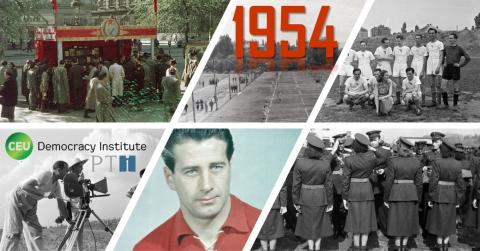
Workshop ‘1954 – Több mint desztalinizáció’ [1954 – More than destalinization]
Budapest, Central European University May 23, 2024
On May 23, the Democracy Institute and Politikatörténeti Intézet organized the workshop ‘1954 - More than Destalinization’. The participants aimed to explore how the political changes which took place immediately after Stalin’s death in 1953 affected different sectors of socialist society. In a broader sense, destalinization meant the moderation of the accelerated process of industrialization, deprivatization and reorganization of society according to the Marxist-Leninist-Stalinist ideology between 1948 and 1953. Viola Lászlófi’s presentation emphasized that although the state party tried to intervene in the professional practice of doctors in the first years of the 1950s and to reshape their behavior to better serve communist biopolitical goals, these attempts did not seriously damage their professional autonomy. The period of strict abortion regulation between 1952 and 1954 shows that the party-state sought to prevent not only pregnant women but also doctors from participating in illegal abortions and to regulate the decision-making process for legal abortions. The strict regulations were relaxed for the first time in the spring of 1954, after Anna Ratkó had left the ministry, and in the existing historical literature this relaxation is considered to be the first and only effect of Destalinization in the field of healthcare. However, the relaxation of these strict rules after the death of Stalin and the end of trials against illegal abortion providers did not mean that the transformation of doctors’ behavior to serve political purposes was completely off the agenda. When significant shifts in state socialist biopolitics came into effect in 1959, a new form of (political) regulation of medical profession was implemented, as medical ethics committees were set up. Through these two examples, the presentation pointed out that since all forms of professional control remained in the hands of doctors, similar to the pre-war period, the various attempts at political intervention failed to bring about significant changes in the medical profession.